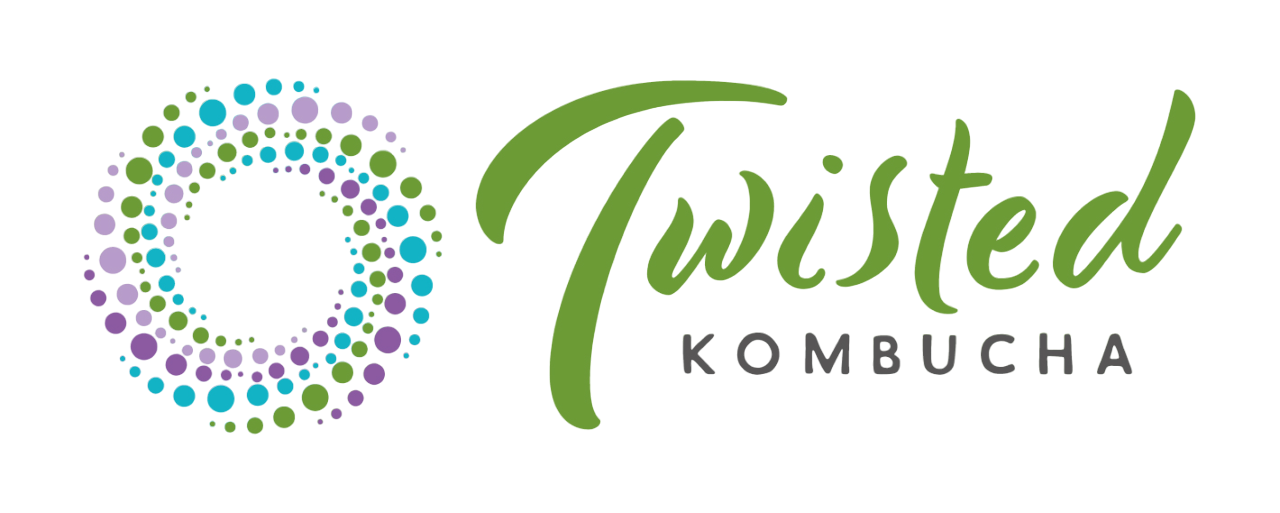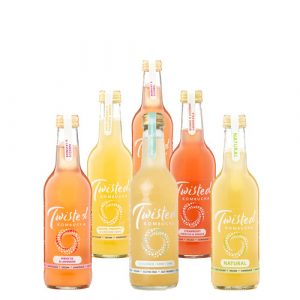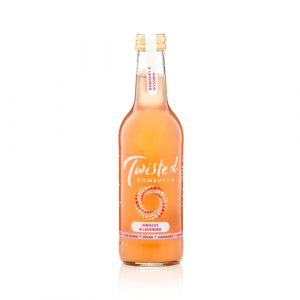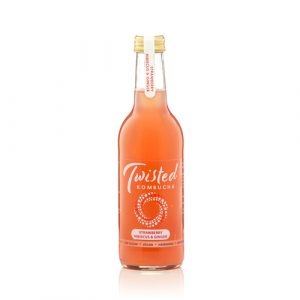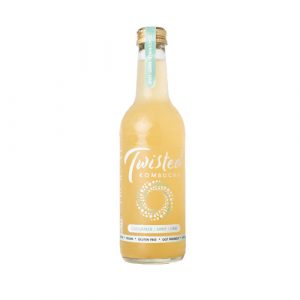
Hey there, it’s Lou! Today, I’m excited to share a personal journey of transformation with you. It’s about the decision I made to replace alcohol with low alcohol kombucha and the incredible effects it had on my life. As a nutritionist and food scientist, I value knowledge about what goes into my body, and I wish to share that knowledge with you!
This isn’t just my story; it’s a story about the science-backed benefits of going alcohol-free, nurturing your gut microbiome, and embracing a healthier, happier you. So, I’ll be highlighting the varying effects of alcohol on the body and then explaining why it’s worth it to switch to a better, healthier alternative.
Let’s get to it, then!
15 Minutes Of Fame: The Short Term Effects Of Booze
First off, let’s take a trip into the short term affects of booze on the body. You know, that glass of wine or pint of beer might seem like a great way to unwind, but what does it actually do to you in the moment? Let’s find out.
- The Brain Buzz:
It’s Friday night, and you’re having fun with friends. You take a sip, and the world seems a bit rosier. That’s alcohol messing with your brain’s neurotransmitters.
It feels great, but it’s only temporary. As the night goes on, the euphoria might turn into slurred speech and impaired judgment. While that might seem like fun, that’s actually your brain working overtime and struggling to process the alcohol. - The Gut’s Grumble:
You’re laughing, but suddenly, you feel a pang in your stomach. Alcohol is notorious for irritating the stomach lining.
It’s like throwing a wild party in your digestive system. The result? Heartburn, nausea, and, sometimes, even vomiting. Not so fun anymore. - Digestive Disruption:
While your friends are still dancing, you’re making frequent trips to the restroom. That’s alcohol’s diuretic effect kicking in, leading to increased urine production.
You’re losing fluids and nutrients, and dehydration sets in fast. Those salty snacks you’re munching on don’t help either. - Blood Pressure Blues:
If you check your blood pressure, you might notice it’s spiked a bit. Alcohol can raise your blood pressure, which can be concerning if you already have hypertension.
Over time, this can damage your blood vessels and the heart muscle. So, those short-term fun moments might have much more dire long-term consequences. - Emotional Rollercoaster:
That warmth you feel after a drink? It’s your blood vessels expanding. But here’s the catch: it can lead to flushing and a racing heart, making you feel jittery.
Plus, alcohol is a mood-altering substance. While it might seem like it’s reducing stress, it can also lead to mood swings and emotional turbulence. - The Liver’s Labour:
Your liver is the real hero here. It’s busy breaking down alcohol to eliminate it from your body. While it does that, it might prioritize alcohol over other important functions, like regulating blood sugar. You might even feel shaky or irritable as your blood sugar level drops. - Slurred Words and Wobbly Steps:
As the night progresses, you might notice your speech getting slurred, and your steps becoming wobbly. That’s alcohol affecting the cerebellum, the part of your brain responsible for coordination.
Walking in a straight line might suddenly feel like the world’s biggest challenge. - Water Weight Gain:
Ever woken up feeling like you’ve gained a few pounds overnight? That’s alcohol-related water retention, making your fingers, ankles, and face puff up. The scale might show a temporary increase. - Memory Lapses:
Ever had a night of partying and realized you don’t remember everything clearly the next day? That’s because alcohol messes with the hippocampus, the memory center in your brain.
It might create gaps in your recollection. - Skin Woes:
And after that whirlwind, as you wind down the night and finally crash into bed, alcohol continues to affect your skin. It dehydrates your body, leading to dry and sometimes itchy skin. Premature aging can also be a result if alcohol becomes a regular visitor to your life.
So, there you have it – a closer look at what happens in the short term when you introduce alcohol to your system. It might seem like a fun guest at the party, but trust me, it leaves a not-so-welcome mess behind.
But, What Does Alcohol ACTUALLY Do To Your Body In The Long Run?
Now, let’s find out the nasty long-term effects alcohol can have on your system. What really happens to your body when you’ve been dancing with the bottle for years? The long-term relationship between alcohol and your body isn’t as glamorous as a Hollywood romance, I promise.
- Brain Drain:
Over time, the brain cells start to shrink, and the gaps between them widen. This leads to memory issues and cognitive impairment. The foggy recollections after a night out might become more frequent and severe. Neurological problems, such as Wernicke-Korsakoff 1 syndrome, might rear their ugly heads. These can result in confusion, ataxia2, and severe memory deficits.
1 Wernicke-Korsakoff syndrome is a neurological disorder often caused by a deficiency of thiamine (vitamin B1), which can be the result of long-term heavy alcohol consumption.
2 Ataxia is a neurological symptom or sign characterized by a lack of muscle coordination during voluntary movements. - Liver Love Turns to Liver Lament:
Your liver, once resilient, starts showing signs of distress. Fatty liver, alcoholic hepatitis, and cirrhosis can develop. Your liver’s ability to regenerate decreases, and it might not be able to repair the damage caused by years of drinking. - Pancreas Problems:
Your pancreas, a vital organ for digestion, takes a hit. Long-term alcohol use can lead to pancreatitis, a painful and potentially life-threatening condition. Digestive enzymes that your pancreas produces might start to harm the pancreas itself. Chronic pancreatitis is often a result. - Heartache:
High blood pressure, irregular heartbeat, and cardiomyopathy can develop, affecting your heart’s ability to pump blood effectively. You become at a higher risk for heart disease, and the potential for stroke increases as well. - Gut Woes:
Alcohol’s constant irritation can damage the digestive system, leading to gastritis, ulcers, and acid reflux. It might also increase your risk of developing colon cancer. The risk of malnutrition rises as alcohol hampers nutrient absorption, and essential vitamins and minerals are lost. - A Weakened Immune System:
The immune system, your body’s defense force, is compromised. Long-term drinking weakens the immune response, making you more vulnerable to infections and diseases. It becomes less effective at detecting and fighting illnesses. - Kidney Complications:
Your kidneys, vital for filtering waste from your blood, might struggle. Chronic drinking can lead to kidney disease and a range of other kidney-related issues. As a result, waste and toxins can accumulate in your body. - Emotional Ebb:
Depression and anxiety can become frequent companions. Alcohol affects the balance of neurotransmitters in your brain, impacting your mood. What might start as a remedy for stress and worry can, ironically, lead to more emotional turmoil. - Cancer Concerns:
The risk of various cancers, including mouth, throat, esophagus, liver, and breast, rises with long-term alcohol use. The carcinogenic effects of alcohol might take years to manifest, but they are real. - Social Strains:
Relationships can deteriorate as your drinking takes precedence. Social isolation is common as your focus shifts towards alcohol, leaving friendships and family bonds strained. - Legal and Financial Consequences:
Legal troubles, accidents, and job loss due to alcohol-related issues can become a reality. Financial strain from funding your drinking habits is another fallout. - Premature Aging:
Wrinkles, redness, and visible blood vessels on the face can become more pronounced as alcohol dehydrates the skin and dilates blood vessels.
Alcohol And The Gut Microbiome
Now, this wouldn’t be a blog by Twisted Kombucha if it didn’t delve into the great depths of the microbiome. That is my specialty, after all.
The gut, often referred to as our “second brain,” plays a pivotal role in our overall health, and alcohol has a way of shaking things up. So how does alcohol throw your gut for a loop and set you off balance?
- Imbalance in the Ecosystem:
Your gut is home to trillions of microorganisms, a diverse community that works together in harmony. But alcohol can disrupt this ecosystem. It can alter the balance between beneficial and harmful bacteria, often favoring the latter. The result? A less diverse and less healthy gut microbiome. - Gut Permeability Problems:
Long-term alcohol use can lead to increased gut permeability, also known as “leaky gut.” This condition allows toxins and undigested food particles to pass through the intestinal lining and into your bloodstream.
The result is an increased risk of inflammation and autoimmune responses, which might lead to conditions like irritable bowel syndrome (IBS) or inflammatory bowel disease (IBD). - Less Nutrient Absorption:
Alcohol can hinder the absorption of vital nutrients. Chronic alcohol use can affect the stomach lining and the small intestine, where nutrient absorption occurs. This means your body might not get all the essential vitamins and minerals it needs. Inadequate nutrient absorption can lead to a range of health issues and malnutrition. - A Vicious Circle:
The relationship between alcohol and your gut is a bit like a vicious circle. Drinking can damage the gut lining and alter the balance of bacteria, which, in turn, can lead to inflammation and digestive issues. These gut issues can sometimes increase the craving for alcohol, perpetuating the cycle. - Increased Digestive Distress:
Bloating, gas, diarrhea, or constipation – these digestive issues can become more frequent with alcohol’s influence on the gut. Moreover, alcohol can stimulate the production of gastric acid, potentially leading to acid reflux and gastritis. - Impact on Mental Health:
A healthy gut microbiome is increasingly linked to mental health. When your gut is in good shape, you’re more likely to experience improved mood and less anxiety. However, alcohol’s interference can disrupt this balance. This imbalance might lead to mental health challenges, such as increased anxiety or depression.
So, it’s pretty clear that alcohol and the gut microbiome aren’t the best of pals. The changes alcohol imposes on your gut can have far-reaching effects, potentially impacting your digestive and mental health.
However, it’s worth mentioning that the story isn’t all bleak. If you decide to make a switch, perhaps opting for a lower-alcohol alternative like Twisted Kombucha, your gut has a chance to regain its balance and health. Remember, it’s never too late for a fresh start.
What Happens When You Make The Switch?
Now, for the much await question regarding what happens when you switch to low alcohol kombucha. Here’s how it went for me:
- Week 1: Setting the Stage
My journey began with a simple realization – alcohol wasn’t doing me any favors. The initial week of switching to low alcohol kombucha was all about setting the stage. I started to feel lighter and more energized. With kombucha, I was sipping on something that felt like a treat but didn’t weigh me down. - Week 2: Goodbye Hangovers
The second week was a game-changer. No more dreaded hangovers. I could wake up clear-headed, well-rested, and ready to tackle the day. This isn’t just about the absence of a headache; it’s about embracing life with a fresh and lively perspective. - Month 1: Digestive Delight
After a month, my gut health showed significant improvement. Alcohol can be harsh on your digestive system, and my gut was grateful for the break. The probiotics in kombucha fostered a balanced gut microbiome, reducing bloating and discomfort. Say hello to a happy tummy! - Month 3: Mental Clarity
The third month was marked by a profound sense of mental clarity. Alcohol can cloud your judgment and fuel anxiety. By choosing low alcohol kombucha, I experienced a newfound mental clarity and a sense of serenity. My stress levels decreased, and I felt more in control of my emotions. - 6 Months In: Vibrant Energy
Six months into my journey, I was brimming with vibrant energy. The short-term benefits had transitioned into long-term gains. My body felt alive, and I was amazed by the boost in my immune system. Kombucha’s probiotics were proving their worth. - 1 Year On: A Healthier Me
A year down the line, I felt transformed. My gut microbiome was thriving, my energy levels were off the charts, and my mood was consistently positive. I had also embraced healthier habits, like regular exercise and a well-balanced diet. The decision to switch from alcohol to low alcohol kombucha had initiated a domino effect of healthy choices.
Why Choose Low Alcohol Kombucha
So, why did I decide to make low alcohol kombucha? Because it’s not just a drink; it’s a lifestyle. Low alcohol kombucha, like Twisted Kombucha, offers the perfect balance between a refreshing beverage and a gut-nourishing tonic. It’s brewed with care, rich in probiotics, free from preservatives, and bursting with natural flavors. When I swapped alcohol for low alcohol kombucha, I wasn’t giving up on enjoyment; I was choosing a healthier, happier me.
Conclusion
In the journey of life, every choice we make impacts our well-being. Swapping alcohol for low alcohol kombucha was one of my best decisions, and the benefits have been extraordinary. From gut health to mental clarity, it’s time to raise a glass of Twisted Kombucha to your mind, body, and soul.
The science supports it, and my personal experience validates it – choosing low alcohol kombucha is a step toward a healthier, happier you. Here’s to a journey of well-being, one sip at a time. Cheers!
